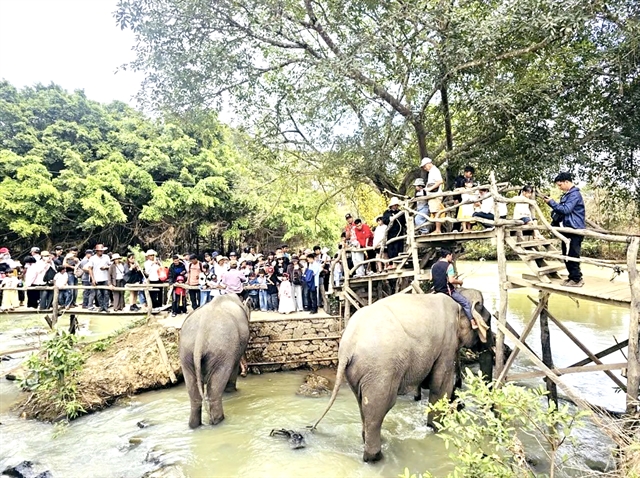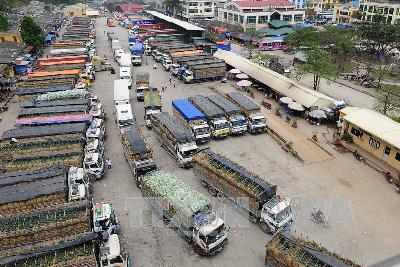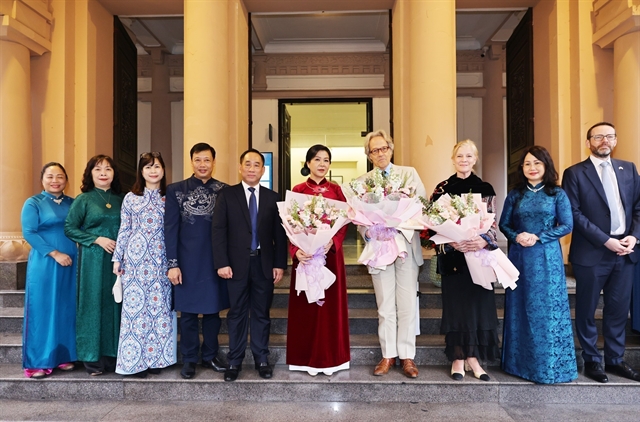 Economy
Economy

Measures must be taken by Vietnamese companies to adapt to changes in China’s import regulations for agricultural products, business leaders and Government officials have said.

|
| Trucks transporting agricultural products held up at the Tân Thanh-Pò Chài Border Gate in the border province of Lạng Sơn last week. — Photo VNA |
HÀ NỘI — Measures must be taken by Vietnamese companies to adapt to changes in China’s import regulations for agricultural products, business leaders and Government officials have said.
Businesses need to change their approach in exporting agricultural products to China, said Lê Thị Mai Anh, head of Asia-Africa Markets Department under the Ministry of Industry and Trade (MOIT).
Anh said China has been evolving with much tighter regulations to oversee the import of agricultural products, especially on packaging, origin of products and geo-tagging.
“We must understand that these changes in regulations aren’t out of nowhere. They have always been there. Chinese authorities have only recently started reinforcing them,” she said.
Anh said the rules are likely to get even stricter as Chinese authorities are starting to crack down on products which are low-quality or don’t meet China’s safety standards.
Last week, nearly 500 trucks filled with Vietnamese agricultural products were held up at the Tân Thanh-Pò Chài Border Gate in the border province of Lạng Sơn. Most of them were transporting dragon fruit from the Mekong Delta.
The backlog was caused by a spike in the number of trucks trying to cross the border that had not been anticipated by Chinese customs authority, as well as a much longer inspection process of six to seven minutes on average compared to just over two minutes previously.
Vietnamese companies must pay more attention to managing the origin of products and geo-tagging, said Đặng Phúc Nguyên, secretary-general of Vinafruit.
Nguyên said Việt Nam has numerous advantages to export agricultural products to China as the two countries share a land border. Short travel distance also helps keep the cost of goods down and China’s appetite for Vietnamese products has been rising in recent years.
These advantages, however, account for little if Vietnamese companies can’t handle stricter regulations set by the Chinese side.
He advised Vietnamese companies to invest in new technologies in preservation and sanitation, saying technology not only gives Vietnamese products easier access to Chinese market but also brings added-value. It would also address a major shortcoming of Vietnamese agricultural products as the country tends to export in large volume but net gains remain modest as product value is low.
“Two major barriers Vietnamese products are facing to enter foreign markets are food safety and phytosanitary. Once we are able to overcome the barriers, our products will have access to a greater number of markets,” Nguyên said.
For the time being, the MOIT’s department of import and export urged companies to stay updated on the latest changes and developments in the Chinese market. The department asked companies to work with farmers to help them improve quality and product packaging to satisfy China’s regulations. — VNS




